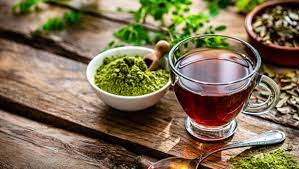7 Best Teas for PCOS

Polycystic Ovary Syndrome (PCOS) is a condition that affects hormone levels in women, leading to various symptoms such as irregular menstrual cycles, acne, and insulin resistance. One of the ways to manage these symptoms is through diet and lifestyle changes, including the consumption of certain types of tea. Here are seven of the best teas that can help manage PCOS symptoms:
1. Spearmint Tea
Spearmint tea is known for its potential to lower androgen levels, which are typically high in women with PCOS. Drinking two cups a day may help reduce facial hair growth and other symptoms associated with elevated androgen levels.
2. Green Tea
Rich in antioxidants, green tea can help reduce insulin resistance and aid weight loss—a common concern for those with PCOS. It also has anti-inflammatory properties that can help alleviate some symptoms of PCOS.
3. Chamomile Tea
Chamomile tea has natural anti-inflammatory properties that can help soothe the body and reduce stress—a significant factor that can exacerbate PCOS symptoms. It also promotes better sleep, which is crucial for overall hormonal balance.
4. Red Raspberry Leaf Tea
Red raspberry leaf is often recommended for female reproductive health. This herb strengthens the uterine lining and may improve menstrual cycle regularity, making it beneficial for women with PCOS.
5. Cinnamon Tea
Cinnamon is known to improve insulin sensitivity, which can be extremely beneficial for women with PCOS who struggle with insulin resistance. Regular consumption of cinnamon tea might assist in regulating the menstrual cycle as well.
6. Nettle Tea
Nettle tea is high in antioxidants and has anti-inflammatory properties that are useful in reducing PCOS symptoms. Additionally, it can support the regulation of hormones, which is fundamental for managing PCOS.
7. Dandelion Root Tea
Dandelion root acts as a natural diuretic and can aid in reducing bloating—a symptom often experienced by women with PCOS. It’s also believed to promote liver detoxification which is essential for hormonal balance.
It’s important to note that while these teas can contribute to symptom management of PCOS, they should not replace professional medical advice or prescribed medication but act as a complementary approach under the guidance of a healthcare provider.






